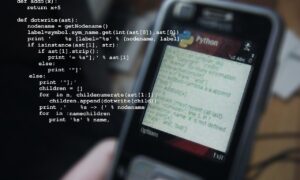We are incredibly glad and eager to support you as you begin your Python learning journey. How Can I study Python in the best way? It was a query that a lot of our readers asked. Let’s first define how learning is a necessary component of learning Python or any other programming language before we move on to learning. The word “learning” plays a significant part in the situation because it is crucial. Understanding how to learn is a technique for better understanding programming, and it is the most important step of all.
With the help of this article, you can continue to learn and understand Python at your own speed and in a variety of contexts. Because the scripts, libraries, and tools used in these programming languages are always being updated to increase efficiency, you should always be prepared to recognize these particular temptations. Following the investigation, many things are known. It has been established that not everyone learns in the same way. Some people are extremely comfortable and learn best when they read, while others learn best when they see or hear something, and some people learn well when they play games. In fact, some people also prefer taking a Python library free course to understand every concept from scratch.
Deep Dive into Python’s Fundamentals
In minimum time, you must cover all the basic fundamentals of Python and explore many of your projects. Without understanding them, you can’t go flawlessly through complex problems and will make your hard times work. Some of the fundamental topics included are listed below :
- Basic Operators
- Variables and Types
- Lists, sets, and Dictionaries
- Basic String Operations
- Strings Formatting
- Functions
- Loops
- List comprehensions
- Classes and Objects
- Conditions
There are many books and different resources that can be utilized to go through the concepts and fundamentals for learning the first ladder to the journey of Python. You may quickly explore fundamentals online on some official websites such as Stavros.io, docs.python.org, RealPython.org, Developers.google.com, pythonforbeginners.org. Using these websites, build your foundation with the basic fundamentals easily.
Choose resources for learning Python fast
To learn python, there are many options for the resources you select but go through the one which suits you as per your interest. There are three categories of Python Resources, namely Interactive, Non-interactive, and Video Resources. We will take a dive into them one by one in this article.
Interactive resources are those which are gaining a lot of popularity as the digital era is growing very fast they are conducted online that facilitate you with coding challenges and explanations. It makes you feel like you are working on a project because you are coding live. Interactive resources are available for free as well as at a nominal charge over various channels. All you need is to sign into one of the mediums for free or take a free trial and then buy its subscriptions.
Non-interactive resources are those through which you are learning in the most traditional ways since previous times they may be classified as books and digital papers and some websites that provide online tutorials that support you on the interface level. Among many of the available non-interactive resources, some of them are absolutely free to learn through this means.
Video resources have been developed over a leap of the past ten years as the (Massive Online Open Courses) MOOC has changed. Many universities are involved in promoting this kind of resource, having a great number of videos that are pre-recorded and are offered in a wide range over various platforms and live streaming over educational institutions. Many videos make you eligible to learn Python.
In the below paragraphs, I am listing some of the best of our knowledge that will help you kick-start your journey to make the best foundational pillar to learning Python. Depending upon the categories, the resources are classified under different groups starting from basics to advanced level courses. All the types of resources are mentioned, which are free and also at cost-effective prices.
Interactive Courses
Tools including Lessons
- Codecademy: This is one of the most interactive online platforms through which you may learn Python faster. The schematic presented over this is very helpful for absolute beginners.
- com: This is a tool that is helpful in writing and visualizing codes step by step. As this tool is able to visualize, your coding can be tested if it’s working or not and hence can be combined together with any other resources.
Non-interactive Resources
Basically, the non-interactive resources can be sub-categorized among two branches :
Books: Books are definitely good friends as they guide you to the key to the success of your journey, and hence help you get involved in the basics completely. Some of the best books are mentioned to my knowledge.
- Introducing Python, 2nd Edition: This book can be referred to as a cookbook in combination with coding. This covers the entire fundamental concepts.
- Learn Python 3 The Hard Way
- Python Basics: A Practical Introduction to Python 3
- Python Crash Course, 2nd Edition
Websites: Websites are the second branch of non-interactive resources that help you too. Some of them are listed and are available for free
- Google’s Python Class
- Python for Everybody
- Hitchhiker’s Guide to Python
- Programiz in Python
- Com
- Sololearn
- com
Videos Resources
Video resources are becoming popular for good reasons. These video resources are available both as live video courses as well as pre-recorded videos over various channels or platforms that support you in enhancing your skill set regarding Python or learning online courses in a professional programming language.
Pre-recorded courses
- Simplilearn: There is a large chain of courses available starting from the beginners level to the advanced level of programming in python
- edX: This is responsible for hosting python courses such as (data science, AI, and the development of games) offered by universities. Edx has a mobile app also available.
- TreeHouse: This is a library that consists of videos containing basic and intermediate materials.
- Udemy: It provides all levels of courses with vast practice materials. It has a huge collection of Python courses depending upon your level of requirements.
- Udacity: It provides a short course of 5 weeks covering python basics and also shares knowledge of different modules.



































